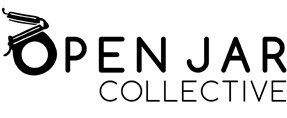
Outline of the Project
The aim of Open Jar’s work with The Stove Network was to gather ideas and viewpoints about the creation of a catering enterprise at The Stove. Following a period of targeted conversations with key stakeholders and pop-up engagement activities with the public, Open Jar Collective produced a report. This will now inform how the space is developed and used by the public and forms part of the tendering process to appoint someone to deliver the catering enterprise at The Stove. From December 2014 to February 2015, we surveyed the food businesses local to The Stove building, spoke to eleven individuals/groups, and ran a public “Feeding Creativity” event, attended by 20 people.
Identified Needs
By The Stove:
- To provide a welcoming space that is a community resource, a hub for the arts community, and a space for people to share and connect.
- To provide a flexible space that can be used for a range of events, workshops, meetings, or other ways of engaging people.
- To ensure that the functioning of any café element in the space is operated autonomously.
- A catering enterprise would serve as a stepping stone to the wider programme of The Stove and activities within the building—a way to signpost people.
- An income stream as part of the social enterprise of The Stove Network Ltd charity, integrated into the charity’s activities.
- A desire to offer something different with its own unique identity.
- A desire for the approach to be ethical in terms of operation, production, and supply.
- To connect to the wider aim of regeneration and attracting people into the town centre.
- To engage with the street outside The Stove and activities in the square.
In the Meetings:
- Training opportunities in the hospitality industry for college students.
- Somewhere to go after 5 pm in the town centre.
- Addressing the lack of activities for 14–21-year-olds in Dumfries.
- For people to collaborate to rejuvenate the town centre.
- To create a destination.
At the “Feeding Creativity” Event:
- A place to meet and space for groups to hire.
- Connecting with local food and food producers.
- A platform for exchanging knowledge and produce between small-scale growing projects/allotments/community gardens.
- Mindfulness around food—simple menu, good food, affordable prices, nourishing environment, and sharing tables/spaces.
- A space that is accessible to young people.
- Promotion of transparent and ethical buying.
- Collaboration—supporting a range of local businesses.
- Avoiding displacement of existing businesses—offering something distinct.
Opportunities
- Goodwill and excitement surrounding The Stove and the new building’s potential.
- Offering something distinct, as most places in the town centre are similar.
- Collaborating with the college to cook food off-site.
- Establishing a multi-functional arts venue to meet the needs of diverse groups.
- Alcohol-free venue—responding to stricter drink-drive limits and creating a pub-like café atmosphere.
- Experimenting with a waste food catering model.
- Growing hub—connecting allotments, barter schemes, and knowledge exchange about growing.
- Providing education on growing produce and cooking methods.
- Bringing food production into the town.
- Profit-sharing with pop-up guest chefs and food producers.
- Creating a community within the building, which has its own momentum and attracts different audiences.
Challenges
- Avoiding alienation of people who are not attracted by a specific focus, such as local food.
- Maintaining quality as a priority.
- Balancing social objectives like local, fairtrade, and ethical sourcing while generating profit.
- Avoiding competition with other food businesses in the town.
- Encouraging support for small, independent businesses over chains and multi-nationals.
- Preventing burnout or lack of revenue for the operator within a year.
- Creating a viable enterprise given limited space and kitchen facilities.
Considerations/Restrictions
Prep/Serving/Storage Area:
- Limited space allows only basic preparation of drinks, cakes, and soup.
- Pop-up event catering would need to happen off-site due to insufficient facilities for cooked meals.
- Conversion of the courtyard space into dry storage is essential.
- Permanent fixtures such as a double prep/washing-up sink, hand wash sink, coffee machine, and electrics for fridges are necessary.
- Cold storage requirements include at least three undercounter fridges for milk, cold drinks, and food.
- Space design should include a counter area for serving and preparation, with flexibility to reconfigure for events.
Design/Fit-Out:
- Balancing the café brand with The Stove’s aesthetic vision.
- Serving drinks and food in compostable paper plates/cups due to space constraints.
- The integration of an industrial dishwasher and china serving ware would require additional staff and storage space.
Further Thoughts
Sourcing/Pricing Policy:
- Balancing local/fairtrade sourcing with affordability to avoid being seen as a niche market.
- Defining “local,” “ethical,” and “sustainable” clearly in the tender document.
- A “preferred supplier” list could include producers such as Loch Arthur for cheese, Earth’s Crust for bread, and Greencity Wholefoods for dried goods.
- Seasonal vegetable soups could showcase local produce and provide a good profit margin.
- Maintaining competitive prices for quality meat, cheese, and bread may be challenging.
Catering Scoping Project for The Stove – Abridged version to accompany Catering Tender
Original version by Clem Sandison, Alex Wilde and Hannah Brackston

